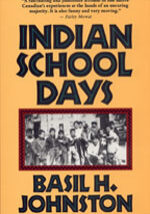In 701 B.C. the Assyrian empire was in its ascendancy. It had already vanquished the kingdom of Israel to the north including the capital at Samaria. It then prepared an assault on Judah and its capital at Jerusalem.
But in one of those significant events that changes the course of world history, Assyria was repelled. Jerusalem was saved until 586 B.C. when the Babylonians sacked the city, forcing its leadership class into exile.
Henry Aubin, in a major feat of scholarship, determines that Jerusalem was aided by a Kushite army from Africa which had marched northeast from the Nile valley. While the Bible attributes the Assyrian retreat to an angel and secular commentators cite pestilence, Aubin, in a meticulously documented work, demonstrates that an alliance with the African nation of Kush bolstered Jerusalem’s defences.
Kush, also known as Nubia, was located in what is now southern Egypt and northern Sudan. A monarchy that existed for more than 1000 years, from 900 B.C. to A.D. 350, Kushites held sway over Egypt from 712 B.C. to about 660 B.C. Of Egypt’s 31 dynasties, this, the 25th Dynasty, is the only one that all scholars agree, was black.
The commander of the Kushite expeditionary force was Taharqa (or as the Bible calls him Tirhakah). This Kushite prince, who had his own interests in halting Assyrian expansion, likely caught the aggressors by surprise as they prepared their siege of Jerusalem.
Aubin offers a thrilling military history and a stirring political analysis of the ancient world. He also sees the event as influential over the centuries.
The Kushite rescue of the Hebrew kingdom of Judah enabled the fragile, war-ravaged state to endure, to nurse itself back to economic and demographic health, and allowed the Hebrew religion, Yahwism, to evolve within the next several centuries into Judaism. Thus emerged the monotheistic trunk supporting Christianity and Islam.

“This is an excellent look at the way assimilationist education really worked. Beautifully written, it manages to capture the subculture of student life that existed below the surface of institutional affairs; the world of the school boys—their wants, desires, and fears that school authorities never knew about or understood—is effectively recreated.â€
Robert Trennert,
Arizona State University
“The author’s style is one of the book’s greatest strengths. Johnston is a superb writer. His use of the language is excellent, but beyond this, he has a powerful story that brings forth the full range of human emotions. In event after event he weaves together a tale that holds within it much of the drama of the history of Indian-white relations.â€
Margaret Connell Szasz,
University of New Mexico
U of Oklahoma Press 1989
Key Porter Canada 1988
Indian School Days
This book is the humorous, bittersweet autobiography of a Canadian Ojibwa who was taken from his family at age ten and placed in a Jesuit boarding school in northern Ontario. It was 1939 when the feared Indian agent visited Basil Johnston’s family and removed him and his four-year-old sister to St. Peter Claver’s School, run by the priests in a community known as Spanish, 75 miles from Sudbury.
“Spanish! It was a word synonymous with residential school, penitentiary, reformatory, exile, dungeon, whippings, kicks, slaps, all rolled into one,†Johnston recalls. But despite the aching loneliness, the deprivation, the culture shock and the numbing routine, his story is engaging and compassionate. Johnston creates marvelous portraits of the young Indian boys who struggled to adapt to strange ways and unthinking, unfeeling discipline. Even the Jesuit teachers, whose flashes of humor occasionally broke through their stern demeanor, are portrayed with an understanding born of hindsight.
Basil Johnston is the author of eight books, the recipient of the Order of Ontario, an honorary doctorate from the University of Toronto. He lives at the Cape Croker Reserve.